Welcome to the Fork in the Road Blog: Reflections on Life. These are “fireside” musings on the reasonably long life I have lived so far. It is my way of thinking aloud over everyday issues reflecting on life’s “What”, “Why?” and “How?” and sharing my views with people around me, physically and virtually. The topics I muse over come to me haphazardly triggered by the surroundings or interaction with people or purely out of the blue. I must have been in church when “belief” came to me as a topic to muse over.
Belief is an acceptance, without proof, that something is true or exists. It is a conviction of the mind that shapes how we interpret reality, make decisions, and act. Belief is often contrasted with knowledge; but knowledge requires justification and evidence, while belief does not demand proof.
Beliefs can take different forms: cultural, religious or personal. They can be communal binding a group, ensuring collective identity and a form of solidarity. In this case there is no room for individual interpretations as there may not be solid evidence for the belief. Collective beliefs are viewed as timeless and preserved across generations. Changing them may be seen as betrayal.
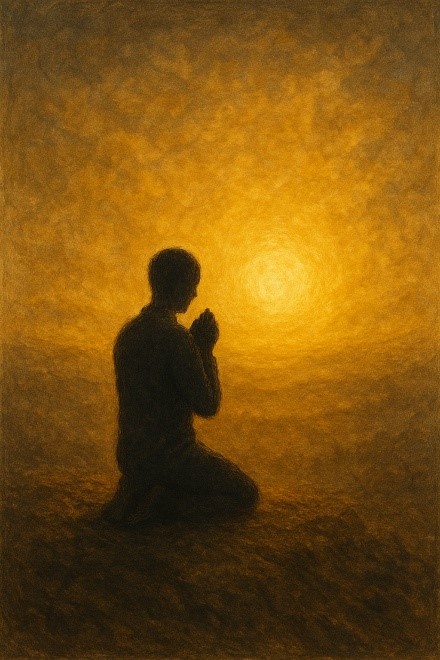 Beliefs form the invisible framework on which cultures are built. They shape ideas of right and wrong, beauty and ugliness, sacred and sacrilegious. In many cultures, the belief in ancestral spirits fashions practices of respect for the elders, ritual offerings, and community solidarity.
Beliefs form the invisible framework on which cultures are built. They shape ideas of right and wrong, beauty and ugliness, sacred and sacrilegious. In many cultures, the belief in ancestral spirits fashions practices of respect for the elders, ritual offerings, and community solidarity.
Shared beliefs bind people together providing common ground for traditions, regulations, and rituals as found in religious denominations. Beside religious beliefs, national identities often rely on collective beliefs in a country’s values be it for freedom, justice, or patriotism.
Beliefs as moral compasses are used by cultures as transmission systems of their values. Beliefs about honesty, hospitality, family, or work ethic influence behaviour and expectations. For example, the belief in humanity towards others (ubuntu) encourages communal living and mutual responsibility.
In my blog musing over culture and marriage, I mentioned that culture is not static, but it can change with times. Similarly, beliefs can also change as they evolve with external contacts, globalization, and impacted by new knowledge. Some beliefs fade, others adapt, and new ones emerge. There are no better examples as with the blending of traditional African beliefs with other religions, some evolving into unique cultural hybrids.
Beliefs may be seen as the lens culture provides to interpret events such as illnesses, misfortunes, disasters seen through religious, scientific, or superstitious systems. These interpretations guide responses, from prayer, scientific interventions, medicine, and rituals.
Beliefs function in culture as a binder or glue, a compass for direction, lens for clarity, and engine or driving force. They glue people together through shared values, act as a compass for moral choices, provide a lens to interpret reality, and serve as an engine for continuity or change.
On the relationship between beliefs and religion, beliefs are the mental or emotional acceptance of certain ideas as true without recourse to evidential proof. Beliefs can be about existence, morality, the divine, the self, and the world. Religion, on the other hand, is an organized system that gives form, structure, and expression to certain beliefs. In other words, beliefs are the inner convictions; what people hold to be true while religion is the structure for the practices needed to reinforce those beliefs. As I ponder over beliefs and religion, I am convinced that any religion is a meaningless ritual without belief and beliefs are a form of private spirituality if they have no rituals.
Beliefs are internal convictions about truth, existence, and morality, with religion the collective embodiment of those convictions through ritual and moral codes. Religions are therefore systems of belief, practice, and social meaning that shape human culture and identity.
Self-belief is the inward conviction that one’s abilities, worth, and purpose are sufficient to navigate life’s challenges and to pursue meaningful goals. It is a form of faith in the potential that resides within oneself.
To believe in oneself is to recognize both strengths and weaknesses but have the courage to tackle the challenge, even when success is not guaranteed. Every small success reinforces one’s confidence, and every failure, when rightly interpreted, deepens resilience. Those who possess strong self-belief do not see failure as proof of inadequacy but as an opportunity to refine their methods and strengthen their resolve. In other words, there is a so-called silver lining in failure. In this sense, self-belief grows not from perfection but from persistence.
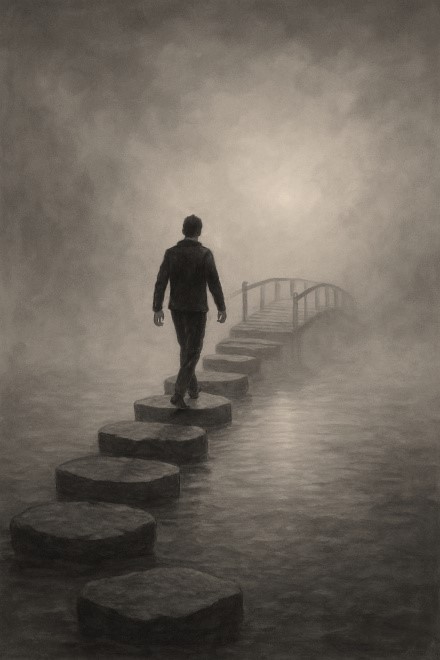 I am convinced self-belief is not culture-specific, for one must believe in oneself to contribute meaningfully to the society. The absence of self-belief often manifests as hesitation, dependency, or nonparticipation, while its presence gives rise to creativity, leadership, and purpose.
I am convinced self-belief is not culture-specific, for one must believe in oneself to contribute meaningfully to the society. The absence of self-belief often manifests as hesitation, dependency, or nonparticipation, while its presence gives rise to creativity, leadership, and purpose.
Self-belief involves trusting your ability to perform tasks and solve problems. This is self-confidence, or self-worth, recognizing that you have intrinsic value, regardless of success or failure. On the other hand, bouncing back from setbacks without losing faith in yourself is resilience. Acting on your convictions even when doubt or fear arise is courage. There is no better example of self-belief than politicians seeking and campaigning for elective positions.
At its highest form, self-belief is neither pride nor self-adoration; it is a grounded awareness of one’s identity and potential. It allows one to dream realistically, to act decisively, and to recover gracefully. It is the inner voice that says, “You can,” against the opposing voice saying, “You can’t.”
Beliefs can legitimize authority, whether political, religious, or traditional. Traditional rulers and religious leaders often draw power from cultural beliefs that their role is divinely sanctioned. These cultural beliefs are emboldened by symbols (flags, rituals, dress, songs etc.) into collective beliefs. Rites of passage, such as circumcision, baptism, courting and marriage, etc. reinforce belief systems and propagate them to new generations.
Beliefs in traditional cultures explain natural and social events through spiritual or supernatural contexts. For example, there were people who believed and preached, with no reference to scientific evidence, that COVID19 was a sign of displeased gods. We frequently hear statements such as “it is God’s will” putting an end, by belief, to explorations of reasons for the occurrence of an event.
Living by belief can give life meaning and direction, but it also carries dangers when belief becomes rigid, unexamined, or disconnected from reality. Belief demands certainty and clings to answers and can be exploited to separate “us” versus “them” breeding hostility, prejudice, and conflict.
When a people cling to belief as absolute truth, they may stop questioning or learning. Belief can turn into dogma, shutting out reason, evidence, and dialogue. This can lead to intellectual stagnation and intolerance toward differing views.
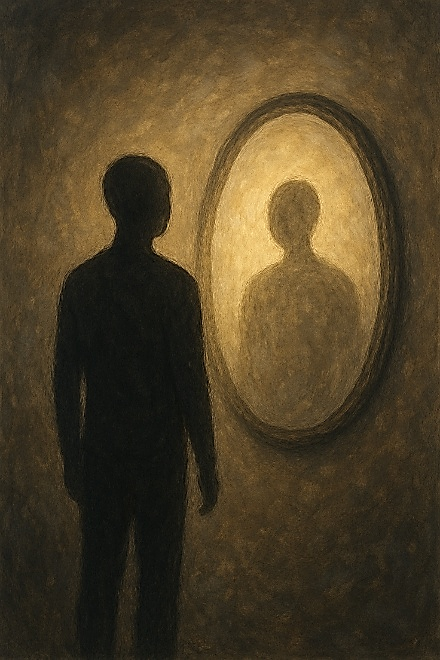 Belief can make one see what they want to see, rather than what is. People may ignore facts, reinterpret failures, or justify harm because it aligns with what they “believe.” The “God’s will” mentality.
Belief can make one see what they want to see, rather than what is. People may ignore facts, reinterpret failures, or justify harm because it aligns with what they “believe.” The “God’s will” mentality.
Belief can lead to moral blindness of leaders, doing harm in the name of good, convinced of the correctness of their cause. A lot of human suffering, in the past and present, can be traced back to moral blindness of leaders.
Beliefs can become life anchors denying even what life, science, or experience show otherwise, clinging to what has always been believed. In other words, resisting change. For example, we see it in people who deny climate change calling it a hoax.
When one’s sense of self or security rests entirely on belief, whether religious, ideological, or personal, any challenge to it can cause deep anxiety or crisis.
Rambling over this topic makes me feel glad I went to church that Sunday
Thank you for being part of the Fork in the Road Blogs: Reflections on Life. Be sure to look out for the next episode when I will be writing about Beyond the merchandize. If you gathered something useful, please feel free to share the blog. My books, Fork in the Road: Creating a future of value starting from where you are and A view round the bend. Setting goals for your life’s journey are available for purchase at Aristoc bookshops in Kampala, Uganda and online at Amazon.
Your comments on my musings are most welcome and let me know whether there is a topic you would like me to muse over.
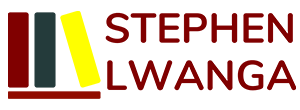
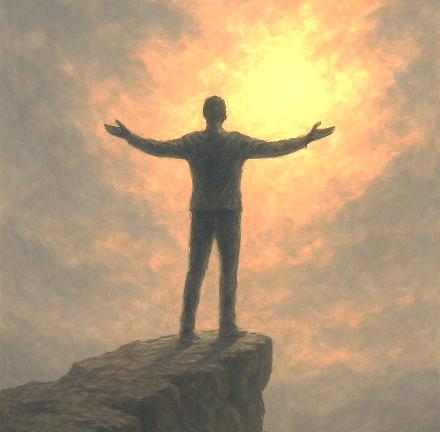
Comments (5)
Samuel Herbert Nsubuga
Thank you very much Ssebo for dissecting “ Belief” and illustrating that it does not require proof and validation.
Joseph Tinka
Great ‘rambling’ on the topic!
Belief is a powerful element. Gandhi once mused on the psychology of belief: that ‘Men often become what they believe themselves to be’. Belief empowers people by giving them unshakeable resolve.
Your article seems to suggest that belief is a subjective attitude that something is true.
Does this make belief a mindset, a feeling or a choice?
Rtn Stephen
Thanks, Tinka, for the thoughtful comments. I take it (almost saying believe!) that belief is a subjective attitude that something is true without recourse to supporting evidence or proof. It is a mindset or feeling by choice or conviction.
I look forward to your comments on my past and future ramblings.
Samuel Okello
Just read your reflections on belief—deep stuff that makes you rethink how culture shapes what we value in beauty and self-care. In Suplery we see how a solid business backbone can support pros like barbers and cosmetologists to keep clients happy with consistent product availability and clear vendor communication. My take is that a good platform should streamline inventory, orders, and even real-time stocktakes, which Suplery delivers. For beauty pros, this means less drama and more time for creativity. If you’re looking to scale, Suplery offers wholesale pricing and a centralized dashboard, making growth feel achievable. Let’s keep pushing standards in our industry.
Rtn Stephen
Thanks PP SOK for these additions to the blog. They enrich it.